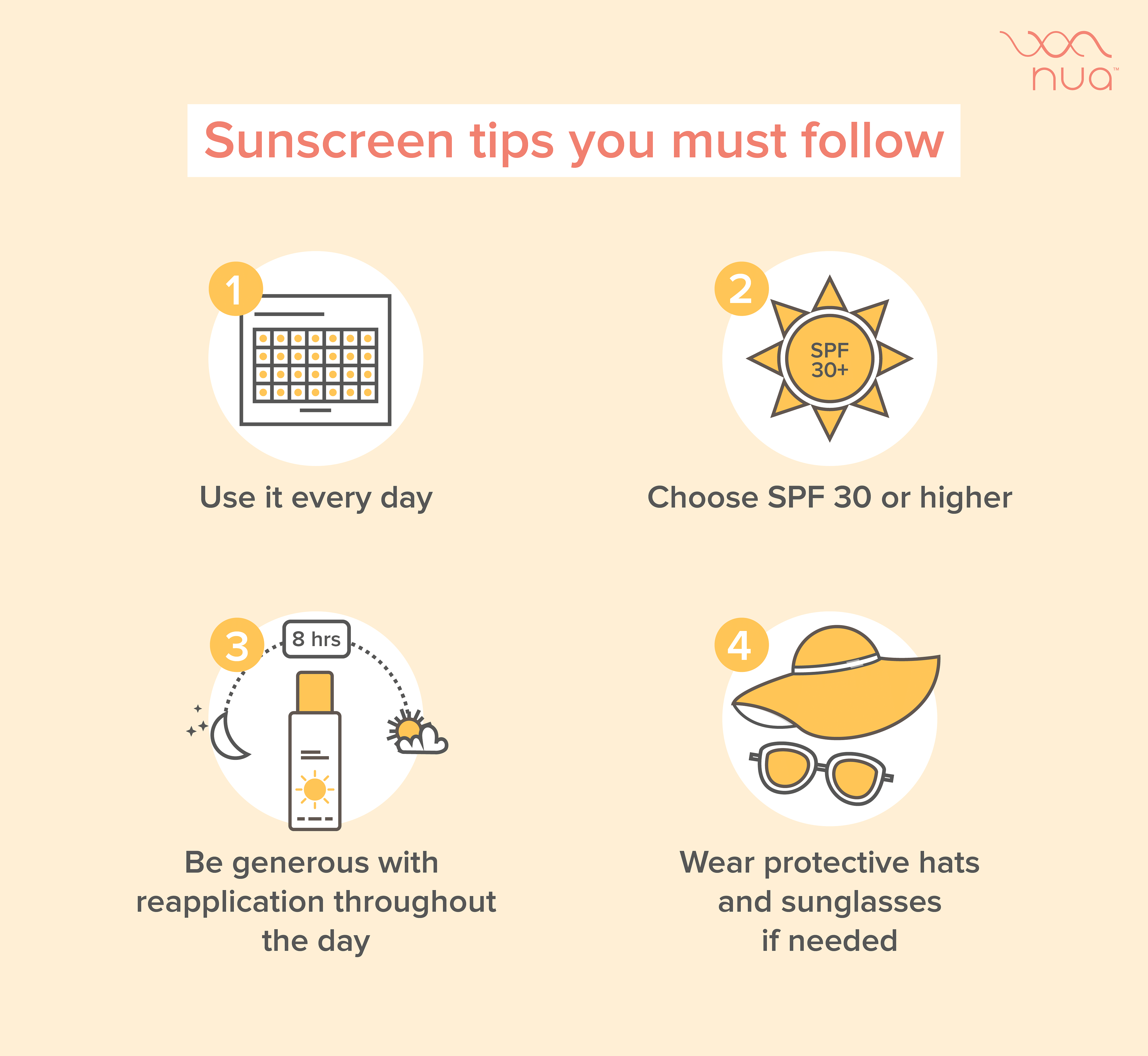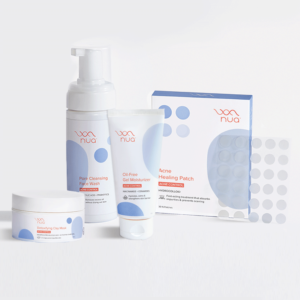As of late, there have been many conversations around the usage of sunscreen and other sunscreen tips. It is important to realize why sunscreen is important to use and the need of wearing and reapplying SPF every day. You might think your skin is safe from sun damage within the confines of your home but recent studies have shown how blue light emitted from digital screens in addition to the UV rays from the sun can penetrate our homes and also cause sun damage.
Whether you’re indoors or outdoors, you may end up damaging your skin and causing great harm.
Come rain or shine, it’s important to make sunscreen your best friend and make it a constant in your routine. Sunscreen is meant for your entire body, not just your face and a generous application is necessary to keep your skin protected.
Why is sunscreen important for your skin?
Sunscreen protects your skin from the damage caused by UVA and UVB rays from the sun and in turn, has several other benefits:
- Avoid getting sunburned
UVA and UVB rays, which are present in sunlight, are both harmful. Long-term skin damage, such as the development of wrinkles, and skin malignancies are mostly connected to UVA radiation. A sunburn is brought on by UVB rays, which are also regarded to be the main contributor to skin cancer. Avoiding a sunburn is a tip that must be followed to protect your skin regardless.
- Avoid inflammation & redness
UVB rays also cause damage that triggers an inflammatory response which along with severe skin reddening is a side effect of spending too much time in the sun. This can be avoided by mindfully applying and reapplying sunscreen. This sunscreen tip will help you protect your skin in the long run.
- Prevent sun sensitivity
In people with sun-sensitive conditions like lupus and rosacea, where exposure to UV rays can cause skin redness and burning and worsen these conditions overall, sunscreen is very effective in reducing solar irritation.
- Avoid hyperpigmentation & uneven tanning
Uneven skin pigmentation, also known as hyperpigmentation, is the term used to describe areas of the skin that change color or tone unevenly. Both sun exposure and inherited conditions can result in this. On the face, hands, and other body parts frequently exposed to the sun, blotchy skin or dark spots may appear. Wearing sunscreen year-round, not just in the summer, is an easy approach to preventing dark spots and uneven tanning.
- Minimize the risk of skin cancer
Skin cancer can be avoided by using sunscreen. Basal cell, squamous, and melanoma skin cancers are the three most prevalent kinds of skin cancer. The main risk factor for these skin cancers is UV radiation. Consistent, adequate protection from the sun’s UV rays can help minimize your risk.
- Prevent sun sensitivity
In people with sun-sensitive conditions like lupus and rosacea, where exposure to UV rays can cause skin redness and burning and worsen these conditions overall, sunscreen is very effective in reducing solar irritation.
- Safeguard your skin 24/7
Even on gloomy days – despite a portion of the rays being blocked by the clouds – some of them still reach the earth’s surface. Additionally, being outside indicates that they are also touching your body. Your skin will be better shielded from harmful rays and protected from several skin conditions if you wear sunscreen.
- Decrease the chance of premature aging
Everyone aspires to maintain a youthful appearance as long as feasible. One of the most efficient preventative methods for wrinkles, fine lines, and crow’s feet is sunscreen. Long-term UVA exposure prematurely ages your skin and reduces its suppleness and collagen production.
- Prevent DNA damage
Studies prove that sun exposure can cause profound and substantial DNA damage that triggers skin carcinogenesis. Due to DNA damage, there may be inflammatory and immunosuppressive processes in epithelial skin tissues and tumor development.
In actuality, sun damage is responsible for up to 90% of the outward indicators of aging. You may prevent the onset of early aging with little effort by incorporating SPF into your everyday skin care regiment.
It is so important to remember that no matter whether you’ll be spending the majority of your time inside or outside, sunscreen should be applied and then reapplied every two hours, and worn every single day despite the season and regardless of whether it’s sunny or cloudy.

Additionally, combine it with a topical vitamin C serum to help fight free radicals and ultraviolet light exposure, delay the onset of aging, and brighten your skin. When going outside, wear UV-protective clothes, and seek out shade in addition to your sunscreen to protect your skin, always!
Our experts work round the clock to provide you with the answers that you are looking for. If you have any, leave it in the comment section below or send us a DM at @nuawoman. This is a safe space so don’t hold back on any doubts you may have about your body, skin and mind.
Read all of Dr. Pavitra Patel’s articles here.









